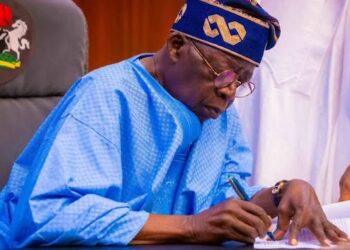 Nigeria has successfully approached the international capital markets for a second time in less than two months, successfully raising another US$ 500 million Eurobond at a cheaper rate than it did in February, indicating the increasingly strong appetite for Nigerian debts in the international capital markets.
Nigeria has successfully approached the international capital markets for a second time in less than two months, successfully raising another US$ 500 million Eurobond at a cheaper rate than it did in February, indicating the increasingly strong appetite for Nigerian debts in the international capital markets.
Minister of Finance, Kemi Adeosun commenting on Nigeria’s second successful outing in the international capital markets in less than two months, disclosed that the proceeds from this additional note issuance will go towards funding capital projects in the 2016 budget.
“ Infrastructure spending is at the heart of our National Economic Recovery and Growth Plan, which was released earlier this month and guides how we will deliver the urgent reform our economy needs between now and 2020. Resetting the Nigerian economy is essential, in order for us to deliver sustainable long term growth.”
In February, the Nigerian government also successfully raised US$ 1 billion Eurobond, which was significantly oversubscribed by more than eight times.
The US$500 million Eurobond is coming at cheaper cost than the initial US$ 1 billion bond, as it comes at a yield of 7.5 percent, 35.7 basis points lower than the initial bond, which attracted a yield of 7.875 percent.
Both bond issues are to be consolidated into a single US$1.5 billion Global Medium Term Note due 16 February 2032 with identical terms and conditions and repayable by way of bullet repayment of the principal, together with the Original Notes.
The Federal Government says the money raised will be used to fund capital expenditure in the 2016 budget. Minister of finance, Kemi Adeosun disclosed on Sunday, that the Federal Government has already released N1 trillion for capital projects in the 2016 budget, the highest cash amount released for capital projects in recent years.
Analysts say that the cheaper pricing of the second tranche of the Eurobond, which is priced 37.5bps lower than the original coupon rate of the US$ 1 billion Eurobond, demonstrates continued strong market appetite for Nigerian securities.
This strong appetite for Nigerian debts comes despite continued volatility in emerging and frontier markets and shows confidence by the international investment community in Nigeria’s economic reform agenda.
The Notes will be admitted alongside the Original Notes to the official list of the UK Listing Authority and to trading on the London Stock Exchange’s regulated market.
Nigeria also intends to have the bonds traded or listed on the Nigerian Stock Exchange and Financial Markets Dealers Quotations Over-the-Counter Securities Exchange.
The issue comes shortly after the country launched its National Economic Recovery and Growth Plan 2017-2020 on 7 March 2017. The plan focuses on policy objectives in five core areas; macroeconomic policy, economic diversification and growth drivers, competitiveness, social inclusion and jobs, and governance and other enablers.
Key targets of the NERGP include reaching single-digit inflation, further growth in the agricultural sector, reducing unemployment, increasing operational energy capacity and domestic refining capacity, improving transportation infrastructure and stabilising the exchange rate, with an emphasis on implementation, monitoring and evaluation of these economic goals.
Also, the director-general, of the Debt Management Office, Abraham Nwankwo, said that Nigeria is delighted to have increased “our 2017 Eurobond programme to US$1.5 billion and to have secured the additional US$500 million.”
He said that “Nigeria was keen to take advantage of favourable market conditions and investor appetite for Nigerian debt, to complete our foreign borrowing programme for the 2016 budget and deliver further funds for vital capital projects.”
Citi, and Standard Chartered acted as Joint Lead Managers and Stanbic IBTC, as Financial Advisers on this Issue.
A sharp drop on in Nigeria’s oil dominated crude oil revenues and the need to reduce dependence on rising domestic borrowing have forced the country to approach the international capital markets to fund its budget. The economy contracted by -1.5% in 2016 and increased infrastructure spending is seen as key to economic recovery in 2017.
Nigeria plans to spend a record N7.3 trillion to help pull the country out of recession in 2017 which is 20 percent higher than the N6.1 trillion budget in 2016. This year’s budget incorporates a budget deficit of N2.36 trillion with most of it to be funded through domestic and international borrowing.











